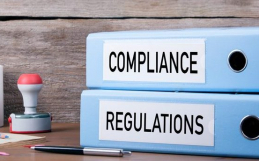The State Revenue Legislation Amendment (miscellaneous) Act 2022 (‘the Amending Act’) came into force on 19 May 2022 and made changes to the Duties Act 1997 (‘the Act’). The changes made by the Amending Act include that, from 19 May 2022 onwards, stamp duty will be charged on the grant or transfer of a call option to purchase land in New South Wales. This will have a significant effect on how purchasers of land choose to structure their transactions.
What is a call option?
A ‘call option’ to purchase land is where a potential purchaser of a property is given the exclusive right by the owner to exercise the right to purchase the property at a specified price during an agreed time period. The potential purchaser who is granted the call option by the owner of the land is called the ‘grantee’. The grantee and the owner will commonly enter into a deed to record the grant of the call option and prepare a draft contract of sale that the parties must sign if the grantee exercises the option.
How does stamp duty apply to the grant or transfer of a call option?
Previously, the grant or transfer of an option to purchase land was not subject to stamp duty in New South Wales. Stamp duty was simply calculated and charged on the purchase price of the property at the time that a contract of sale or, if there was no contract of sale, Transfer of Land, was signed. This meant that if a grantee was granted an option or had an option transferred to them, they would not pay stamp duty on the purchase of the property until the option was exercised and the contract of sale for the property was signed.
Now, pursuant to section 11(1)(k) of the Act, an option to purchase land is considered to be dutiable property and pursuant to section 8(1)(b)(ix) of the Act either the grant of a call option to the grantee or the transfer of a call option from one grantee to another, is deemed to be a dutiable transaction and is subject to stamp duty.
The stamp duty that is charged on the grant or transfer of a call option is in addition to the stamp duty that needs to be paid at the time that the owner and grantee sign a contract of sale for the property to be purchased by the buyer.
How is stamp duty calculated for the grant or transfer of a call option?
Stamp duty is paid at the standard rate of duty on either the consideration paid by the grantee for the call option or the transfer of the call option, which is commonly called the ‘call option fee’, or the unencumbered value of the option, whichever is higher. Pursuant to section 273 of the Act, irrespective of what the call option fee or unencumbered value of the option are, the minimum amount of stamp duty that must be paid is $10.00.
How is the unencumbered value of the call option determined?
Normally, where parties are unrelated and dealing at arms’ length, Revenue NSW is willing to accept that the price that is agreed between them for a transaction is the same as the unencumbered value of the relevant property. This approach is likely to also apply to call options. At this stage, it is unclear how closely Revenue NSW will investigate call option arrangements, and it is possible that if parties make a call option fee deliberately low in order to reduce the stamp duty liability, this may trigger further investigation. Revenue NSW has indicated that it will release a Commissioner’s practice note in the future in relation to the changes in the Act, which may assist purchasers to determine appropriate call option fees.
When must the stamp duty be paid?
The stamp duty must be paid within 3 months after the call option was granted or transferred to the grantee.
The stamp duty is non-refundable, even if the option is not exercised or the purchase of the property does not proceed for some other reason.
Impact on stamp duty to purchase the property when the call option is exercised
Pursuant to sections 22(4) and 64D of the Act, if a call option is exercised and the grantee proceeds to sign a contract of sale to purchase the property, the stamp duty that is charged on the purchase of the property is calculated based on the purchase price of the property (or the unencumbered value of the property, if it is higher than the purchase price) PLUS the call option fee. The stamp duty charged for the purchase of the property is then reduced by an amount equal to the stamp duty that has already been paid by the grantee for the grant or transfer of the call option. This is illustrated in the following example:
- John enters into a call option deed with the owner of a property, Bob, on 1 July 2022. The call option deed states that John can exercise a call option to purchase the property from Bob for the price of $100,000 at any time until 31 December 2022.
- John pays a call option fee of $5,000 to Bob at the time that they sign the call option deed.
- On or before 30 September 2022, John must pay stamp duty at the standard rate on the $5,000 call option fee.
- John exercises the call option on 1 December 2022 and John and Bob sign a contract of sale for the property, which states that the price of the property is $100,000.
- John must pay stamp duty at the standard rate on the contract of sale within 3 months after the date that the contract is signed. The stamp duty is calculated based on the sum of $105,000, which is the call option of $5,000 plus the purchase price of $100,000 in the contract of sale.
- The stamp duty amount previously paid is deducted from any stamp duty amount that is payable within the 3months of the contract being signed.
As a result of the changes to the Act set out in this article, purchasers of property in New South Wales will need to consider the stamp duty consequences of the transaction both when a call option is granted and when a contract of sale is actually signed. Because the stamp duty paid on the grant or transfer of a call option is non-refundable, purchasers will need to consider carefully how they calculate the call option fee.
At Bryks Lawyers, we are experienced in dealing with property matters and their related tax implications and consequences. Contact us today to see how we can assist you!






